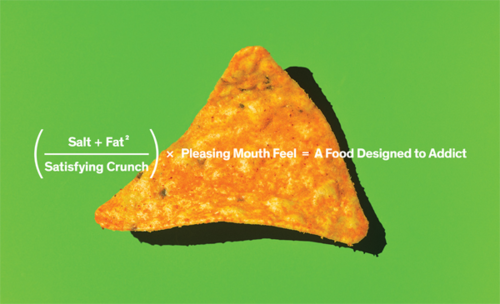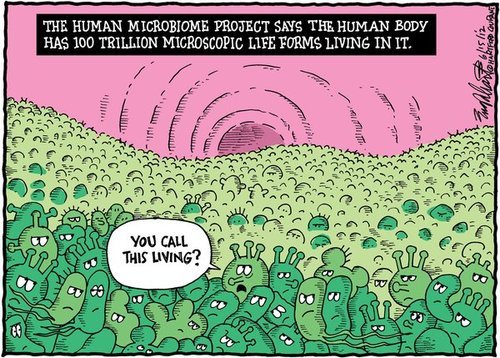Two new clues to why processed food makes us fat (ill)!
Two new studies show why highly processed foods really may be our dietary downfall.
It’s no secret that more people are overweight or obese than not these days. But the question continues to be why the rates are increasing, despite so much public health knowledge about healthy eating and exercise. While overeating is not technically an addiction, it certainly mirrors the disorder in many ways. And as such, it’s the brain and behavior research that’s really providing some of the best clues into the obesity crisis. This may not be so surprising, since after all it’s the brain, rather than the belly, that controls our relationships with food. Now, a new study does a formal assessment of which foods are the most “addictive” to humans. And it’s exactly the ones you’d think.
In the new study, published in the journal PLOS ONE, the authors argue that, like drugs, when foods are very highly processed, they start to become more “potent,” and, therefore, addictive.

For instance, chewing a coca leaf doesn’t give a very strong high, but condensing it into cocaine and making it snort-able sure does. So too with foods whose elements are refined and combined in various clever ways – food labs spend lots of time on these calculations – until they become very “high-potency.”
“Addictive substances are rarely in their natural state,” the authors of the new study point out, “but have been altered or processed in a manner that increases their abuse potential. For example, grapes are processed into wine and poppies are refined into opium. A similar process may be occurring within our food supply.”
To this look at the processed food effect in humans, the team had participants gauge their tendencies toward food addiction by filling out the Yale Food Addiction Scale, which asks people to rate phrases like, “Over time, I have found that I need to eat more and more of certain foods to get the feeling I want, such as reduced negative emotions or increased pleasure” and “I spend a lot of time feeling sluggish or fatigued from overeating.” They also had people make a series of choices about which of two foods they felt they’d have the most trouble controlling themselves around – for instance a muffin vs. salmon. From these results, the team composed a list of foods from most to least addictive.
Interestingly, at the top of the list were foods that are high in bothfat and refined carbs: Pizza, chocolate, potato chips, cookies, and ice cream. In the middle of the list were generally foods that are high in either fat orcarbs. And brown rice, apples, beans, carrots, and cucumber fell at the bottom.
The ranking suggests that it’s really the combination of fat and carbs that makes food addictive. And this is probably because our brains are not used to coming across foods that are both high in fat and high in sugar – natural foods are usually high in just one or the other. So putting these two ingredients together into some wondrously unnatural and magical combination makes the brain go wild. “It is plausible that like drugs of abuse,” say the authors, “these highly processed foods may be more likely to trigger addictive-like biological and behavioral responses due to their unnaturally high levels of reward.”
To make matters worse, processed foods often have additives that can themselves cause weight gain from another angle: Gut microbes.

Another newstudy, in Nature, found that emulsifiers – “detergent-like” compounds used to keep foods like mayonnaise from separating into its separate parts, oil and water – even at low doses caused massive disruption to the gut bacteria of lab mice. The two common emulsifiers used in the study, polysorbate 80 and carboxymethylcellulsos, also triggered obesity, metabolic syndrome, and inflammatory bowel disease. Since more research has suggested that our gut bacteria are critical to our health and body weight (earlier this month a woman with a fecal transplant reported a huge weight gain in the months following), the new study adds an interesting piece to the puzzle, suggesting that certain food additives may also play a role in their health.
For years, experts have been telling us to drop the highly-processed foods in favor of as many natural and plant-based foods as possible. The public seems to belistening, at least a little, as sales of “fake foods” are starting to fall off. So if you can, choose foods that are unprocessed as possible and have few or no additives. And if you’re going to indulge, try to pick foods that arejust fatty or just carby. If you go for foods that include high amounts of both delectable ingredients, your brain may treat it like a drug, and just keep wanting more.
